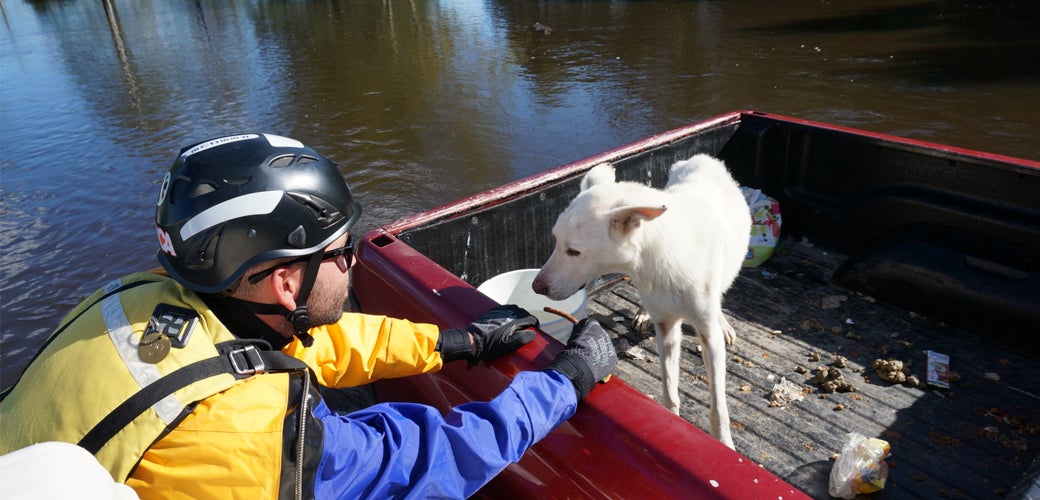
Our Hopes for How the Biden-Harris Administration Can Help Animals

Last month’s presidential election has resulted in preparation for a new administration, and with it, renewed hope for reforms that will help animals. We encourage President-elect Joe Biden and Vice President-elect Kamala Harris to use their time in office to make progress on a bipartisan issue we all care about deeply—improving animal welfare.
Federal agencies are charged with overseeing animal welfare programs as well as implementing and enforcing animal welfare laws—including the Animal Welfare Act (AWA), the Humane Methods of Slaughter Act, the Horse Protection Act, and the Wild Free-Roaming Horses and Burros Act. Here are some of the policies we hope to advance in partnership with the new administration:
- Improve the treatment of dogs and cats raised commercially as pets.
The U.S. Department of Agriculture (USDA) has failed over the years to provide protections for animals raised commercially—including dogs living in horrendous conditions in puppy mills. Enforcement of the AWA plummeted drastically during the Trump administration, and there were severe problems with transparency and inspections. We call on the incoming administration to make drastic improvements to how facilities are inspected and to ensure that there are appropriate consequences for violations of the law. - Require animal facilities to plan for emergencies.
AWA licensees—like zoos, puppy mills and animal laboratories—are not currently required to have plans in place to care for animals in case of an emergency or disaster. This has caused animal suffering that could have been prevented: animals abandoned in these facilities have drowned during hurricanes, succumbed to hypothermia during power outages and died in fires. The USDA must require AWA-licensed facilities to have an emergency plan and to train their employees to know how to implement that plan when disaster strikes. The USDA finalized a rule to effect this change back in 2012, but it was put on hold for reasons that have now been resolved. We hope the new administration will act to implement this rule immediately. - Improve the treatment of animals raised for food and begin a shift away from industrial animal agriculture.
When consumers purchase meat, eggs and dairy products labeled “Organic,” they expect that the animals who were used to produce them were raised according to higher welfare standards. Unfortunately, that’s not necessarily the case. The USDA should remedy this by reinstating the Organic Livestock and Poultry Practices rule—an initiative that the ASPCA supported when it was finalized in 2017, but that was withdrawn during the Trump administration. The USDA must also reverse dangerous policies allowing faster slaughter line speeds, which increase the risk of Humane Methods of Slaughter Act violations, as well as harms to workers and food safety. We also encourage the incoming administration to help transform our nation’s cruel industrial animal-agriculture system into a more humane food system free of factory farming. - Protect equines from abuse.
The USDA must work to improve the lives of American equines, starting by permanently eliminating the possibility of domestic horse slaughter and ending the export of horses for slaughter once and for all. The overwhelming majority of Americans don’t consume horse meat or support the slaughter of horses for food. This practice is not only inherently cruel, it’s also unsafe due to the many drugs administered to equines during their lives that make horse meat unfit for consumption. As Vice President, Joe Biden championed the annual appropriations measure that defunds the slaughter of domestic horses—we hope as President, he will lead the charge to ban this cruel industry. In addition to banning horse slaughter, we also encourage the USDA to strengthen the prohibition against “soring”—a cruel practice inflicted on show horses to achieve an unnaturally high gait—under the Horse Protection Act. - Build on meaningful progress to protect wild horses and burros for generations to come.
Over the past four years, working with a diverse coalition of stakeholders and lawmakers (including some former opponents on the wild horse and burro issue), we have made progress encouraging the Department of Interior’s Bureau of Land Management (BLM) to transform its Wild Horse & Burro Program. Our coalition agreed on the essential need to treat wild horses and burros with the dignity they deserve, including removing lethal management tools as an option, and proposed a humane and sustainable long-term management plan [PDF]. The exponential population growth of these magnificent animals poses threats to their survival—especially as climate change wreaks havoc on western lands and limits food and water sources. We encourage the BLM to remain committed to embracing a non-lethal management program for our wild equines that centers on fertility control and eventually eliminates the need for mass roundups and warehousing of wild animals.
President-elect Biden and Vice President-elect Harris were both strong advocates for animals as members of Congress (Harris is a lead sponsor of the HEART Act), and we hope they will make animal welfare a priority under their administration.
If you’d like to get more involved in producing lasting policy changes for animals, please join our Regional Advocacy Field Team!
